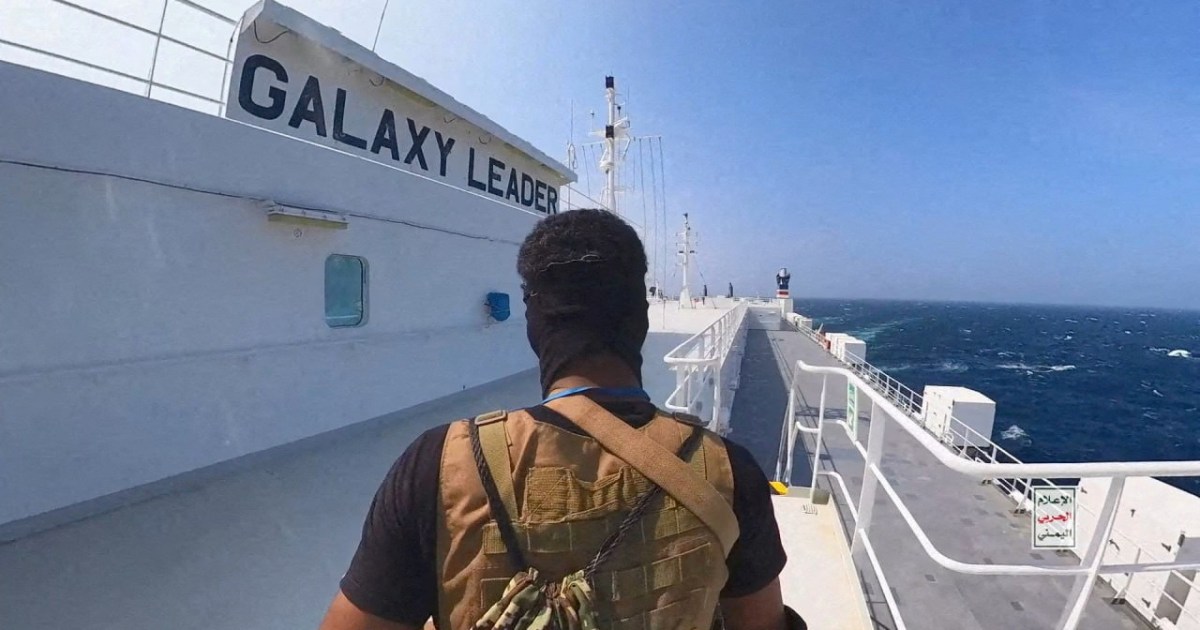The United States military’s Central Command (CENTCOM) has recently reported a dramatic interception of 18 drones launched by Yemen’s Houthi rebels over the southern Red Sea, marking the group’s 26th attack on international shipping lanes within the last seven weeks. This alarming development has spurred collaboration with forces from the United Kingdom, resulting in the successful interception of two anti-ship cruise missiles and one anti-ship ballistic missile launched by the Houthi rebels.
Iranian-Backed Houthi Attack
According to CENTCOM, the Iranian-backed
Houthi rebels orchestrated a complex assault involving Iranian-designed one-way attack UAVs, anti-ship cruise missiles, and an anti-ship ballistic missile from territories under Houthi control in Yemen into the Southern Red Sea. This coordinated attack underscores the heightened security risks in the region, necessitating decisive military intervention to safeguard international waters and maritime trade routes.
Continued Attacks and Collaborative Response
The attack carried out by the Houthi rebels represents the 26th assault on shipping lanes in the Red Sea since November 19, when they commandeered the Galaxy Leader, a vehicle carrier en route from Turkey to India. Notably, the armed group has attributed its actions to the ongoing conflict in
Gaza, specifically citing opposition to Israel’s war on the region. Subsequently, the US formed an international maritime coalition to address the attacks, leading to collaborative efforts with the UK to thwart further hostile actions by the Houthi rebels.
Military Intervention and Response
In response to the escalating threat, fighter jets from the Dwight D Eisenhower aircraft carrier and four destroyers, including one from the UK, partook in the operation to intercept the enemy drones and missiles. Despite the intensity of the situation, there were no reports of injuries or damage, indicating the effectiveness of the military intervention in neutralizing the immediate threat posed by the Houthi rebels.
International Maritime Coalition and Ongoing Conflict
It’s crucial to note that the US-led maritime force was established to counter the recurring attacks, which have compelled some shipping lines to opt for the longer sea route around southern Africa to bypass the Red Sea entirely. Ongoing dialogue and strategic measures within the international maritime coalition aim to mitigate the disruptions caused by the Houthi attacks and reinforce the security of crucial maritime passages traversing the Red Sea.
Houthi Objectives and Global Implications
The Houthi rebels have expressed their intent to persist with the attacks until there is a cessation of the conflict in Gaza, signaling an unwavering pursuit of their objectives despite the proactive measures taken by the international maritime coalition. Moreover, the deployment of an explosives-laden sea drone into shipping lanes exemplifies the increasing sophistication and intensity of the conflict, necessitating heightened vigilance and preparedness to confront evolving threats in the maritime domain.
Complexities and Multinational Connections
Despite the Houthi rebels’ claims of targeting Israeli-linked vessels, Vice Admiral Brad Cooper highlighted that numerous countries have affiliations with the targeted ships, emphasizing the multinational impact of the attacks. Notably, the multifaceted nature of global maritime trade underscores the interconnectedness of diverse nations and commercial entities, underscoring the broader implications of the conflict on a global scale.
Impact on Maritime Trade and Humanitarian Concerns
The interception of the enemy drones and missiles represents a critical juncture in safeguarding maritime trade routes and curtailing potential disruptions caused by hostile actions. Given the significant disruptions to shipping activities and the potential for humanitarian crises, the proactive measures undertaken by the US and UK military forces hold paramount importance in preserving the stability and security of international waters amidst volatile geopolitical developments.
Conclusion
In conclusion, the interception of 21 enemy drones and missiles in the Southern Red Sea by the US and UK military forces underscores the imperative of collaborative, proactive intervention in addressing evolving security threats in the maritime domain. As the conflict dynamics continue to evolve, sustained vigilance and concerted efforts within the international community are essential to safeguarding vital maritime passages and mitigating the far-reaching repercussions of hostile actions on global maritime trade and security.


